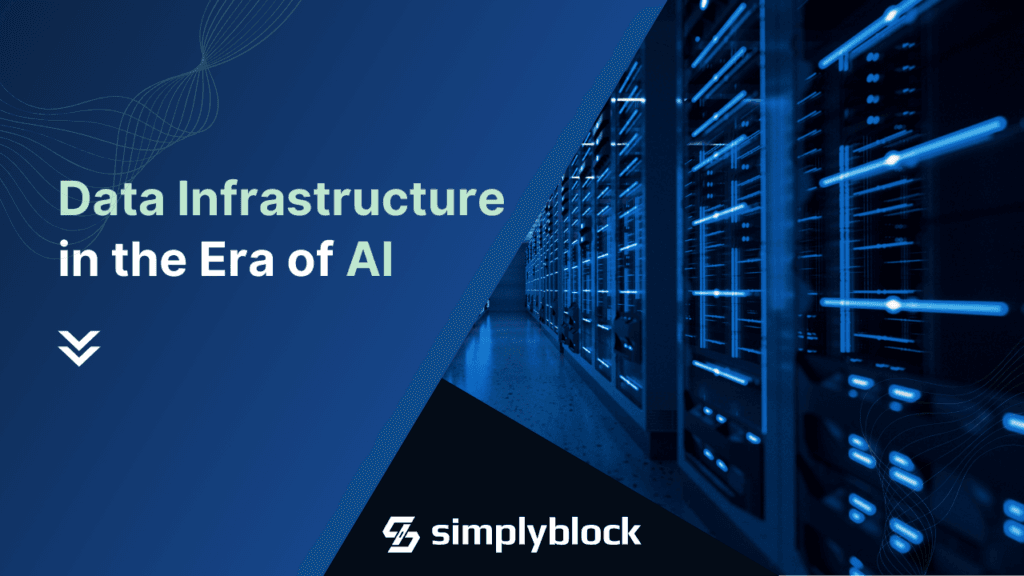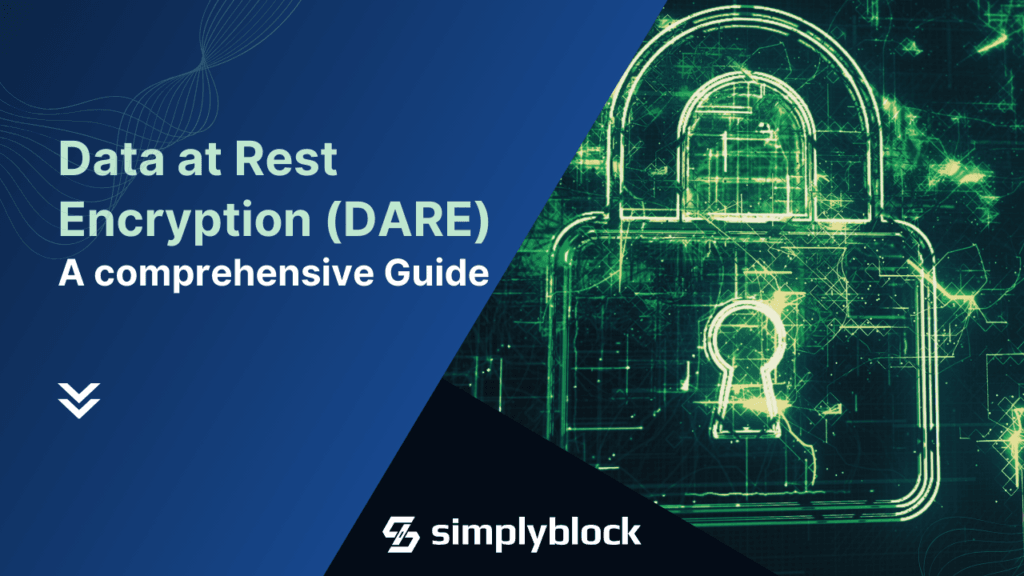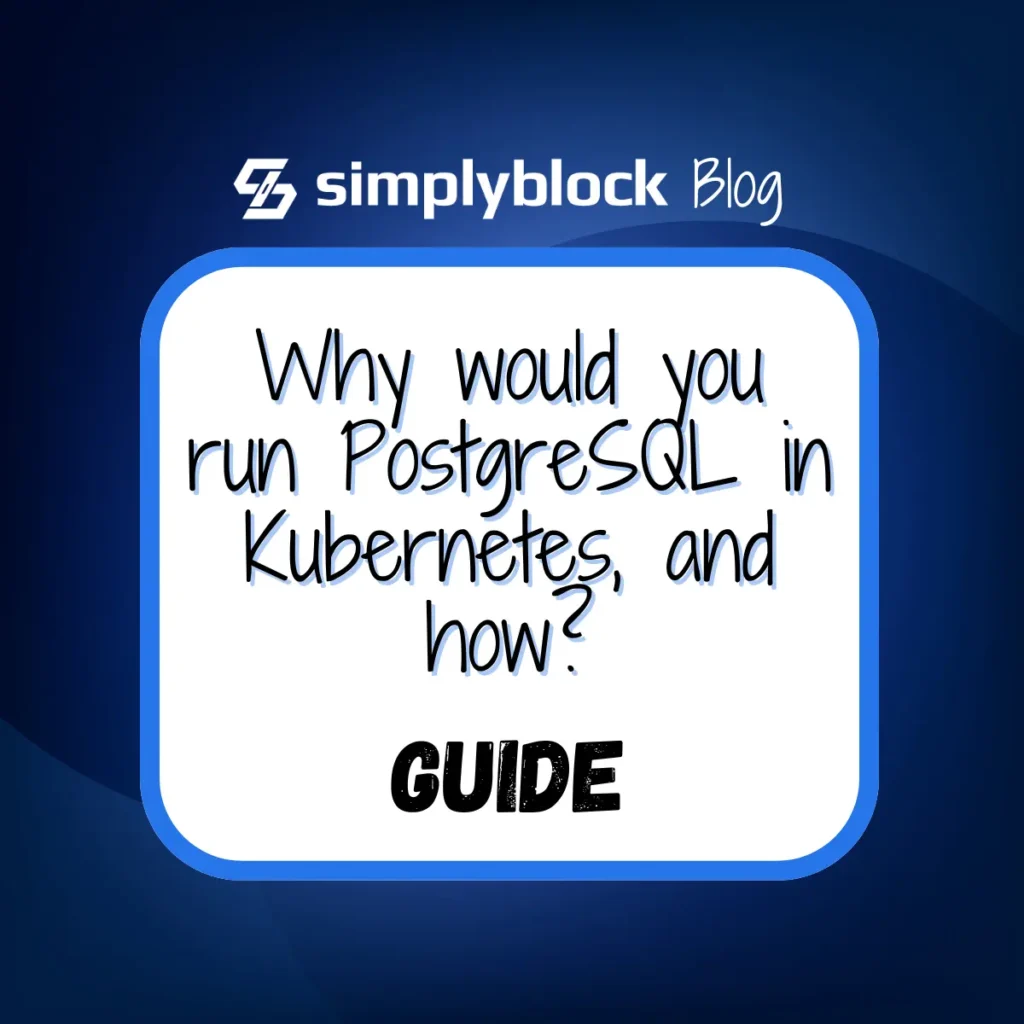Reselling spare GPU and data center capacity | Mihai Mărcuță
Aug 20th, 2024 | 6 min read

Introduction:
This interview is part of the simplyblock Cloud Frontier Podcast, available on Youtube , Spotify , iTunes/Apple Podcasts , and our show site .
In this episode of simplyblock’s Cloud Frontier podcast, Rob Pankow interviews Mihai Mărcuță, co-founder of NodeShift, to discuss the innovative approach of leveraging spare GPU and data center capacity for cloud services. Mihai explains how this model not only reduces cloud infrastructure costs but also opens up new opportunities for startups and enterprises looking for affordable and scalable alternatives to traditional cloud providers. If you’re curious about how underutilized data centers are transforming the cloud landscape, this episode dives deep into the economics and benefits of reselling spare capacity.
Key Takeaways
What is the Role of Spare Capacity in Reducing Cloud Infrastructure Costs?
Spare capacity in data centers refers to the unused or underutilized compute, storage, and GPU resources. By tapping into this idle capacity, companies can significantly reduce their cloud infrastructure costs. Instead of building new data centers or relying on expensive cloud providers like AWS, businesses can leverage spare capacity at a fraction of the cost, providing the same performance and scalability. This approach is particularly advantageous for startups and smaller companies looking to optimize their operational budgets while still accessing enterprise-grade infrastructure.
What are the Challenges in Building a Cloud Platform using Spare Data Center Capacity?
One of the key challenges in building a cloud platform using spare data center capacity is ensuring reliability and performance consistency. Since the capacity comes from different providers, maintaining a unified and seamless user experience can be difficult. It requires sophisticated orchestration tools, strong SLAs (Service Level Agreements), and comprehensive monitoring to ensure that resources are available when needed. Additionally, the decentralized nature of this model poses challenges in managing latency and ensuring compliance with data residency regulations.
What are the Benefits of using Smaller, Localized Data Centers for Latency-sensitive Applications?
Latency-sensitive applications, such as gaming or financial trading, demand fast response times and minimal delay. By using smaller, localized data centers, companies can place their compute resources closer to their users, reducing the time it takes for data to travel between the server and the client. This approach not only improves performance but also enhances user experience, particularly in regions where large cloud providers may not have a strong presence.

In addition to highlighting the key takeaways, it’s essential to provide deeper context and insights that enrich the listener’s understanding of the episode. By offering this added layer of information, we ensure that when you tune in, you’ll have a clearer grasp of the nuances behind the discussion. This approach enhances your engagement with the content and helps shed light on the reasoning and perspective behind the thoughtful questions posed by our host, Rob Pankow. Ultimately, this allows for a more immersive and insightful listening experience.
Key Learnings
How do Enterprises Benefit from Distributed Data Centers for Compliance and Low-latency Needs?
Enterprises operating in industries like finance, healthcare, and gaming often have stringent requirements around data privacy, residency, and latency. Distributed data centers allow companies to store and process data in specific geographic regions, ensuring compliance with local regulations such as GDPR or HIPAA. Additionally, distributed infrastructure reduces latency by bringing compute resources closer to the end user, improving performance and ensuring a smoother experience in applications that demand real-time interactions.
Simplyblock Insight:
A geographically distributed infrastructure is vital for ensuring low-latency and compliance for businesses operating across multiple regions. Simplyblock’s cloud storage solutions support these goals by providing low-latency access to data, ensuring that businesses can meet regional compliance requirements without compromising performance. With simplyblock, enterprises can manage data across borders while ensuring that users receive fast, reliable access to applications and services, regardless of location.
How does Geographical Location of Data Centers Affect Latency for Gaming and Financial Applications?
The physical distance between data centers and end users significantly affects the latency of applications, especially in sectors like gaming and financial services, where milliseconds can make a difference. Localized data centers bring the infrastructure closer to the users, reducing the round-trip time for data to travel between the server and the client. This proximity results in faster response times, which is crucial for applications that demand real-time performance, such as multiplayer gaming or high-frequency trading.
Simplyblock Insight:
Latency is a critical factor in the performance of cloud-based applications. Simplyblock’s high-performance storage solutions are designed to reduce latency by ensuring that data is stored and accessed from the closest geographical location to the user. By deploying into AWS data centers around the globe, simplyblock provides businesses with the flexibility to deploy their applications closer to their users, minimizing lag and enhancing overall user satisfaction.
Why is Data Residency Important for Companies Processing Sensitive Information?
Data residency refers to the requirement for data to be stored within specific geographic locations to comply with local regulations and privacy laws. This is particularly important for companies in industries such as healthcare, finance, and government, where data privacy is paramount. Failure to comply with data residency laws can result in legal penalties, loss of trust, and reputational damage. By ensuring that data is processed and stored in compliant regions, companies can meet legal obligations and protect sensitive information from unauthorized access.
Simplyblock Insight:
Data residency is a critical consideration for businesses handling sensitive information across multiple jurisdictions. Simplyblock provides secure, region-specific storage solutions that help companies comply with local data residency regulations without sacrificing performance. By ensuring that data remains within the required geographic boundaries, simplyblock enables businesses to meet regulatory requirements while maintaining high availability and performance for their applications.
Additional Nugget of Information
What is the value Proposition of using a Decentralized Cloud Infrastructure for Cost Savings?
Decentralized cloud infrastructure offers significant cost savings by utilizing underused or spare data center capacity from various providers. This approach allows companies to access compute resources at a lower price point than traditional cloud providers, which often charge premium rates for their services. By distributing workloads across multiple smaller data centers, businesses can reduce their infrastructure costs while maintaining scalability, performance, and compliance.
Conclusion
Reselling spare GPU and data center capacity is reshaping the way companies approach cloud infrastructure, offering a cost-effective alternative to traditional cloud providers. As Mihai Mărcuță highlighted, tapping into underused capacity not only reduces costs but also provides scalable, high-performance solutions for businesses with latency-sensitive or compliance-driven needs. By leveraging localized and distributed data centers, companies can optimize their cloud infrastructure for performance, cost savings, and regulatory compliance.
Simplyblock’s cloud platform enhances these efforts by offering high-availability storage that integrates seamlessly with decentralized infrastructures. With the ability to store and access data across multiple regions, simplyblock helps businesses ensure that their cloud applications are both cost-efficient and reliable.
For more insights into cloud infrastructure and emerging trends in data center utilization, be sure to tune in to future episodes of the Cloud Frontier podcast!



